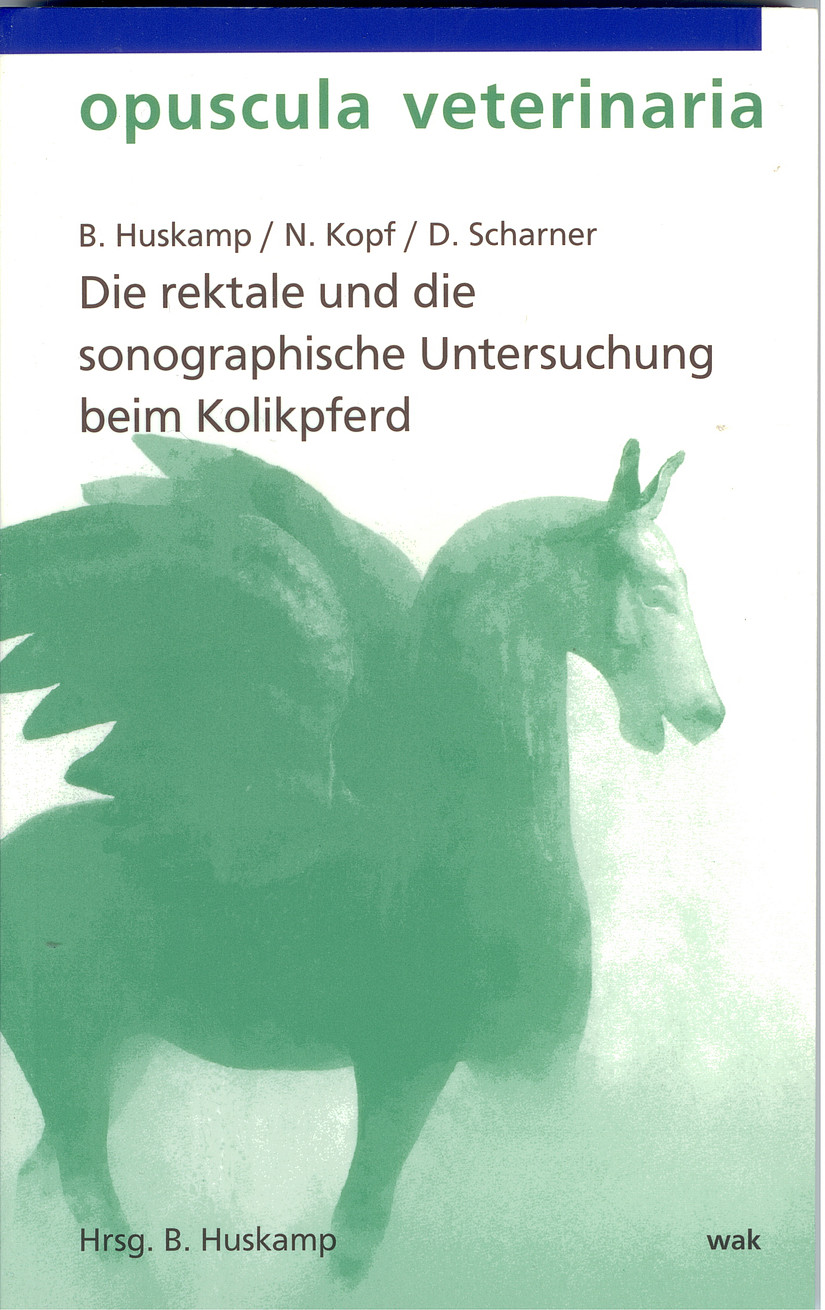Disorders of the Abdomen and the Digestive Tract (Colic)
Based on the surgical techniques developed by Bernhard Huskamp at Tiermedizin Hochmoor in the 1970s and 1980s and on a long-standing wealth of experience, our veterinary surgeons in the area of abdominal and soft tissue surgery at Pferdeklinik Hochmoor work towards curing the referral patients with intensity and dedication. As one of the co-founders of modern colic surgery, Prof. Dr. Dr. h.c. Bernhard Huskamp has established ground-breaking operation techniques for the surgical treatment of colic patients. The systematic approach to diagnosis and aftercare which is traditionally taken at our hospital significantly improves the horses’ chances of survival. With intensive care, extraordinary results can be achieved even in cases of complicated intestinal disorders.
Intestinal Surgery in Colic Cases
Despite a range of conservative treatment methods (laxatives, e.g. paraffin oil, i.v. infusion, analgesia, controlled rolling), surgical intervention cannot always be avoided in cases of intestinal obstruction. During abdominal surgery, displaced bowel parts are repositioned or, in case of severe damage, bowel parts are also resected. Surgeries where significant amounts of sand or foreign bodies have to be removed from the large intestine are also frequently required. After laparotomy (opening of the abdominal cavity), patients are usually supplied with a belly bandage and remain at the hospital for some time (8 to 14 days) depending on their progress in order to be optimally cared for. For the first period after return to the home yard, our veterinarians provide advice on exercise and feeding. Usually, normal work and controlled turn-out can recommence after 6 to 8 weeks.
![[Translate to English:] Kleintiermedizin Hochmoor [Translate to English:] Kleintiermedizin Hochmoor](/kv/_processed_/7/e/csm_Kleintiermedizin-Hochmoor_c796a9e531.jpg)
![[Translate to English:] Klinik für Pferde [Translate to English:] Klinik für Pferde](/kv/_processed_/0/d/csm_pferdeklinik-01_c18cc541af.jpg)
![[Translate to English:] Allgemeine Untersuchung Kleintier [Translate to English:] Allgemeine Untersuchung Kleintier](/kv/_processed_/1/5/csm_allgemeine-Untersuchung-Kleintier_cdba7ebb98.jpg)
![[Translate to English:] Lahmheitsuntersuchung Pferdeklinik Hochmoor [Translate to English:] Lahmheitsuntersuchung Pferdeklinik Hochmoor](/kv/_processed_/2/e/csm_Lahmheitsuntersuchung-Pferdeklinik-Hochmoor_8e9ec18025.jpg)

![[Translate to English:] Tiermedizin Hochmoor CT Hund [Translate to English:] Tiermedizin Hochmoor CT Hund](/kv/_processed_/6/4/csm_Kleintiermedizin-3_56aa5d056b.jpg)
![[Translate to English:] Tiermedizin Hochmoor Kleintiermedizin [Translate to English:] Tiermedizin Hochmoor Kleintiermedizin](/kv/_processed_/d/e/csm_Tiermedizin-Hochmoor-Kleintiere_5f8df77a2f.jpg)
![[Translate to English:] Pferdemedizin Hochmoor [Translate to English:] Pferdemedizin Hochmoor](/kv/_processed_/5/6/csm_Pferdemedizin-Hochmoor_2a06563c44.jpg)
